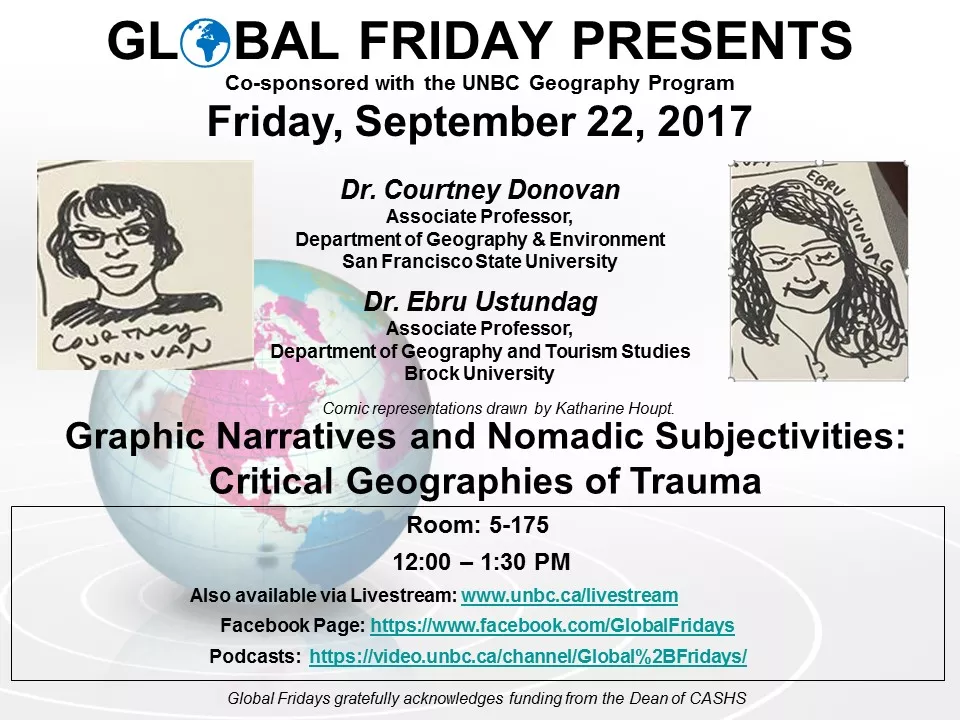Graphic Narratives and Nomadic Subjectivities: Critical Geographies of Trauma

Dr. Courtney Donovan
Associate Professor, Department of Geography & Environment
San Francisco State University
Dr. Ebru Ustundag
Associate Professor,
Department of Geography and Tourism Studies
Brock University
ABSTRACT: This talk considers the value of graphic novels in challenging institutional representations and responses to trauma. In particular, we are interested in the ways in which the integration of visual and written text in graphic novels offers an opportunity for considering trauma as an experience that transcends static Western binaries. Broadly speaking, institutions such as medicine and law tend to define trauma as a physical or psychological injury. By situating trauma either in the mind or the body, medical and judicial institutions miss its dynamic nature. We contend that static explanations of trauma do a significant disservice to understanding traumatic events and play a role in pathologizing individuals who have experienced trauma. Traditional institutional explanations of trauma also overlook the ways in individual experiences of trauma are linked to collective traumas. Moreover, traditional descriptions of trauma overlook the ways in which a traumatic event continually acts, creating nomadic subjectivities. Graphic novels that explore trauma offer an opportunity to disrupt and deconstruct the existing ontological framing of trauma and a new approach to understanding the complexity of traumatic experiences. This reframing has significance not only to the ways in which institutions attend to trauma; it also offers opportunity for how critical geographers begin to approach the complexity of trauma in our work as educators, activists, and researchers. To illustrate our point, we draw from several graphic novels that attend to the experience of trauma. We specifically focus on works that illuminate the invisibility of the costs of survivorship. Examining these works offers an entry point for addressing our collective responsibilities in relation to trauma. By foregrounding the question of cost of survivorship, we aim to critically evaluate the everyday realities of trauma, informed by legal, health and social policies. In doing so, we aim to reposition and reframe critical geographic scholarship of health experiences and health disparities.
Also available via Livestream
Global Friday gratefully acknowledges funding from the Dean of CASHS.